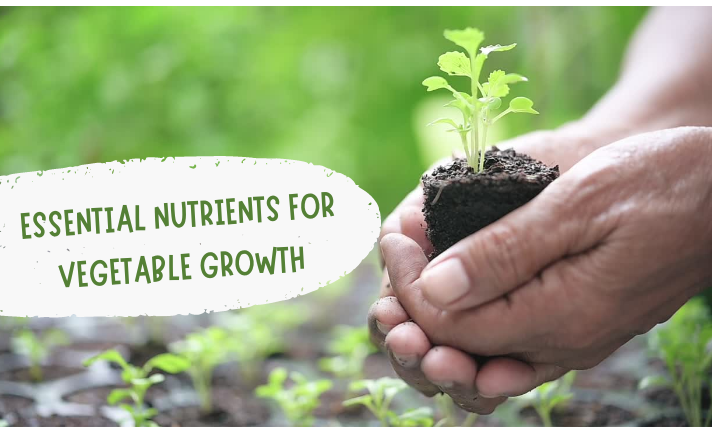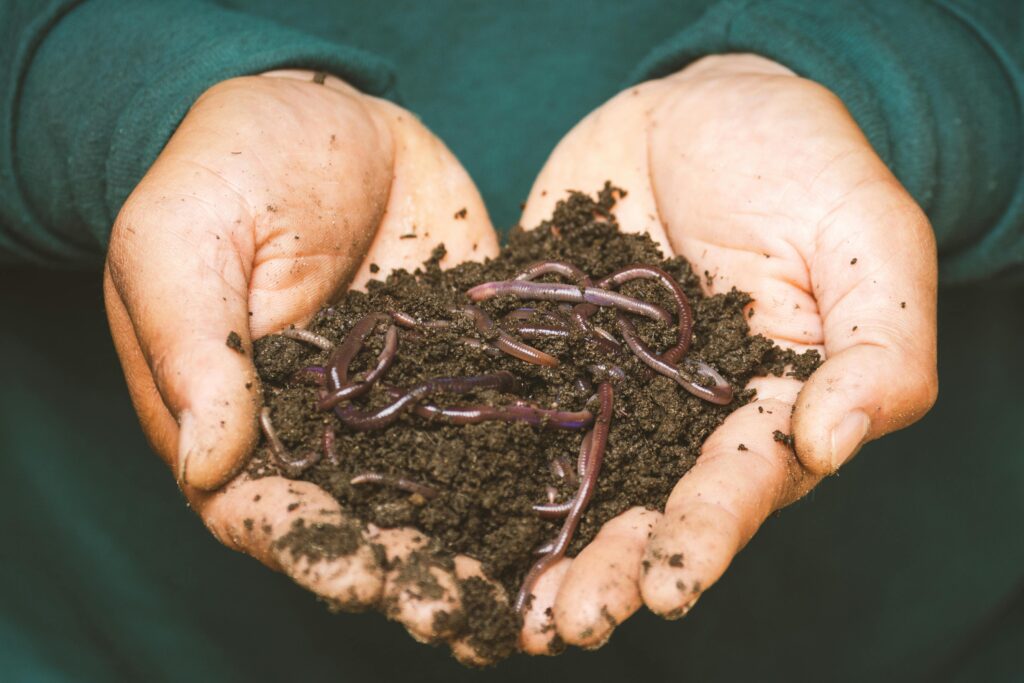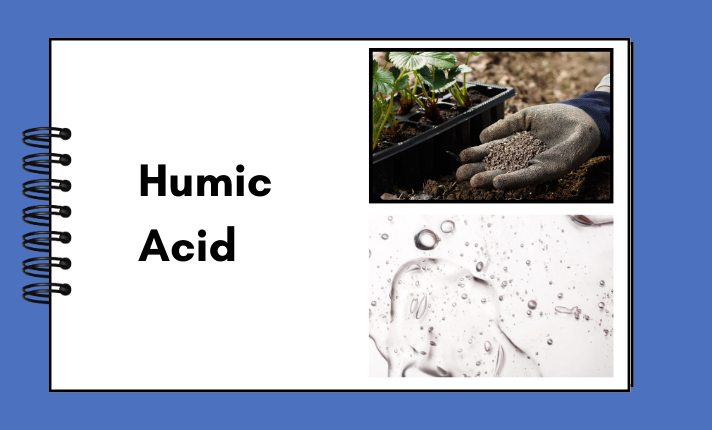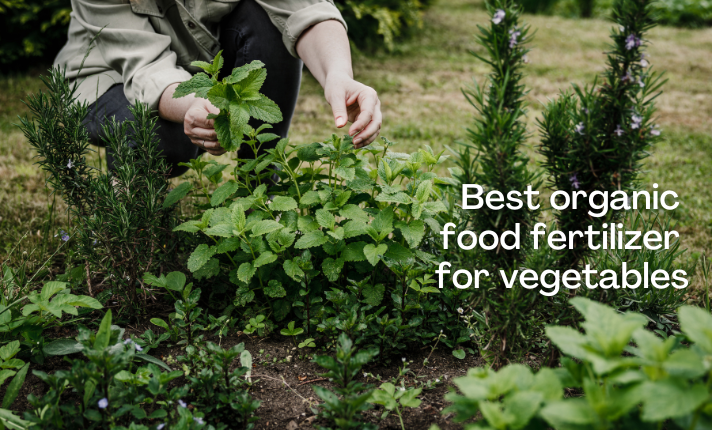The organic gardening method has grown in popularity recently, with many gardeners opting for natural ways to increase their veggies. One of the main components of organic gardening success is using organic food fertilizer, which prepares vital nutrients for plants without relying on synthetic chemicals. Organic fertilizers don’t just benefit rising soil fertility but can also improve the yield, growth, and quality of vegetables. This article explores the excellent natural food-grade fertilizers available for vegetables and provides information on their advantages, types, and methods for productive utilization.
Why Choose Organic Fertilizers?
Before getting into the different kinds of organic fertilizers, you need to know why using organic fertilizers over synthetic ones is advantageous. Organic fertilizers originate from natural sources, such as animal and plant matter, mineral matter, compost, and even the soil. Here are a few reasons they are a good choice for gardening with vegetables:
- Environmentally friendly Organic fertilizers are biodegradable and don’t contain harmful chemicals that may harm the soil, air, and water. They encourage biodiversity by creating a healthy ecosystem for insects, microorganisms, and other beneficial organisms.
- Improves the structure of soil Organic fertilizers improve soil’s physical qualities. They boost soil’s capacity to hold the water it needs, increase aeration, and provide an environment for beneficial soil organisms.
- Sustainable Organic fertilizers are made from renewable resources, which makes them green. They help return nutrients to the soil, ensuring soil fertility in the long term.
- Organic fertilizers are safe for plants and Humans. They don’t contain synthetic chemical compounds, decreasing the chance of chemical burns on plants and reducing gardeners’ exposure to harmful chemicals.
- Slow release of nutrients: Organic fertilizers slowly release nutrients, providing the same amount over time. This decreases the risk of nutrient loss and assures plants an ongoing supply of vital elements.
Essential Nutrients for Vegetable Growth

Before deciding on the perfect organic fertilizer, it’s important to know the essential nutrients needed for vegetable growth, which require a mixture of micro and macronutrients to flourish.
- Macronutrients These are essential in more significant amounts and comprise:
- Micronutrients These are essential in lesser amounts but are equally crucial. They comprise:
- Calcium (Ca): Strengthens cell walls and assists in leaf and root development.
- Magnesium (Mg): Vital for the production of chlorophyll and enzyme activation.
- Sulfur (S): Involved in the synthesis of proteins along with enzyme activities.
- Iron (Fe), Zinc (Zn), Copper (Cu), Manganese (Mn), Molybdenum (Mo), Bore (B), and Chlorine (Cl) are all involved in activating enzymes, chlorophyll synthesis, and general plant well-being.
Types of Organic Fertilizers for Vegetables
Various organic fertilizers are available, each with distinct advantages and a nutritional profile. Below are the most accurate organic fertilizers to grow nutritious and productive vegetable gardens:
1. Compost
Compost is the most widely utilized organic fertilizer and is frequently regarded as the foundation of organic gardens. It is created by decomposing organic matter, such as leaves, kitchen scraps, grass clippings, and manure. Compost is high in beneficial microorganisms and nutrients, making it an ideal soil conditioner.
- Benefits:
- Enhances the soil’s structure as well as the retention of water.
- Gives you a balanced intake of nutrients essential to life.
- It increases the activity of microbial organisms in soil.
- Increases the growth of plants and increases improves plant growth.
- How to Use:
- Spread a layer of 1-2 inches of compost on the soil. Mix it in the upper 6-8 inches before planting.
- Use it as a mulch for plants to keep moisture in and grant slowly-released nutrients.
2. Manure
Manure from animals like chickens, cows, horses, and rabbits is also a good natural fertilizer. It is an excellent source of nitrogen, phosphorus, and potassPhosphorusrace elements. Composting or aging manure is crucial to keeping plants from burning or spreading diseases.
- Benefits:
- It enriches the soil with vital nutrients.
- Increases soil’s structural integrity and improPhosphorusity.
- Improves the yield and growth of vegetables.
- How to Use:
- Apply a layer of 2-3 inches of composted manure to the garden bed and then incorporate it into the garden.
- Use it as a top dressing around plants in the spring and summer.
3. Worm Castings

Worm castings, also known as vermicompost, are rich in nutrients excreted by earthworms. They’re a highly efficient organic fertilizer containing a healthy mixture of vital nutrition, beneficial microbes, and enzymes.
- Benefits:
- It enhances the soil’s structure as well as improves aeration.
- Improves seed germination and growth.
- Enhances resistance of plants to diseases and insects.
- It is an excellent source of plant nutrients.
- How to Use:
- Mix worm castings into garden soil or potting mix before planting.
- Apply it as a side dressing for plants every 4 to 6 weeks.
4. Bone Meal
Bone meal is an excellent powder made from the bones of ground animals, most often cattle. It is high in calcium and phosphorus, making it a phosphorus-excellent-excellent organic fertilizer for root development and flowering.
- Benefits:
- Offers a slow-release suPhosphoruslcium and phosphorus
- SupportPhosphorusoot growth as well as healthy blooming.
- Aids to increase the health of plants and their Vigor.
- How to Use: Vigorbone meal in the soil before planting using the recommended rate of applicatPhosphorus label.
- Please use it as a dressing around flowers in the spring and summer months.
5. Blood Meal
A blood meal is an organic fertilizer derived from animals, typically from cattle. It is a fantastic choice to promote leafy growth in the vegetable kingdom.
- Benefits:
- It is a source of quick-release nitrogen.
- Improves the growth rate of leafy vegetables like spinach, lettuce, and kale.
- It helps to correct soil nitrogen deficiencies.
- How to Use:
- Apply the blood meal on the soil before planting, and follow the recommended dosage rate listed on the packaging.
- Use it as a side dressing for nitrogen-loving plants every 4-6 weeks.
6. Fish Emulsion
Fish Emulsion is an organic liquid fertilizer made from by-products of the fishing industry, such as fish oil and fish remains. It is a rich source of trace minerals, nitrogen, and an excellent vegetable fertilizer.
- Benefits:
- It is a fast and easily accessible source of nitrogen.
- Increases the growth of plants and enhances the fruiting process.
- It is a rich source of trace minerals that benefit.
- How to Use:
- Dilute the fish emulsion according to the directions on the packaging and apply it to the soil or use it as a spray for the foliar.
- Every 2-3 weeks throughout this growing time.
7. Kelp Meal

Kelp meal is dried, ground, and pulverized seaweed. It is a rich source of potassium, trace minerals, and growth hormones, which makes it an excellent organic fertilizer that can improve plants’ overall health and resilience.
- Benefits:
- It is a slow-release source of calcium and trace minerals.
- Improves root development and enhances the plant’s Vigor.
- Enhances resistance to stress from the environment as well as pests and diseases.
- How to Use:
- Mix kelp meal into the soil before planting, and follow the recommended rate for application on the label.
- Use it as a dressing for plants every 4-6 weeks.
8. Rock PhVigorte
Rock Phosphate is a mineral that occurs naturally. It is crushed into a powder and used as a source of phosphorus for orgPhosphorus. It is an excellent fertilizer to encourage root development and vegetable flowering.
- Benefits:
- SloPhosphorussource of phosphate.
- ImprovPhosphorus roots and flowering.
- Increases plant overall health as well as efficiency.
- How to Use:
- Mix rock phosphate into the soil before planting, following the recommended application rate on the label.
- Serve as Phosphorusve side-dressing around flowers during the season of growth.
9. Green Manure
“green manure” refers to crops designed to be integrated into the soil to increase fertility. Leguminous crops like alfalfa, clover, and peas are often utilized in green manure as they can fix nitrogen in the soil.
- Benefits:
- Organic matter is added to improve soil structure.
- It is a natural supply of nitrogen.
- It reduces weeds and soil erosion.
- How to Use:
- Green manure crops are planted in the fall or early spring.
- Cut the plants and then till them into the soil before they plant seeds.
10. Humic Acid

Humic acid is an organic compound found in nature, derived from the decomposition of animal and plant matter. It is frequently employed to treat soil and as a fertilizer to increase the uptake of nutrients and improve soil health.
- Benefits:
- How to Use:
- Apply humic acids as a soil drench or spray for foliar use, following the application guidelines on the product’s label.
- Utilize every 4-6 weeks throughout the season of growth.
Tips for Using Organic Fertilizers Effectively
To achieve accurate results in organic fertilizers, it’s crucial to use them properly and adhere to perfect practices for organic gardening. Here are some helpful tips to benefit you in utilizing organic fertilizers definitely:
- Test your soil. Before applying any fertilizer, examining your soil to determine its nutritional content and pH is a good idea. This will help you select the best fertilizer and avoid over-fertilizing.
- Follow the Recommended Rates for Application Organic fertilizers can be powerful, and use too often could cause imbalances in nutrient levels and environmental damage. Always adhere to the recommended rates for application on the fertilizer label.
- Apply fertilizers at the appropriate time. Timing is essential when it comes to fertilizers. For instance, fertilizers rich in nitrogen are desirably applied during the initial stages of growth, and phosphorus-rich fertilizers are perfect for aiding in root development and flowering.
- Utilize a Balanced Approach Different vegetables require different amounts of nutrients. Use a balanced strategy by mixing various Organic fertilizers to obtain the most diverse nutrients.
- Incorporate fertilizers into the soil. To maximize the efficacy of organic fertilizers, mix them in the soil instead of just putting their granules on top. This will help increase the plant’s roots’ plant’s roots’ uptake of nutrients.
- Maintain healthy soil. Organic fertilizers work well in well-structured, nutritious soil. To maintain the health of your soil, use soil management practices like planting mulch, rotating crops, and composting.
- Pay Attention to Your Plants Be aware of your plant’s growth and health. If you observe any nutritional deficiencies, such as leaves turning yellow or stunted growth, alter your fertilization routines accordingly.
Conclusion
Organic fertilizers are essential to an environmentally sustainable, healthy, and nutritious vegetable garden that offers plants vital advantages and biodiversity and helps protect the ecosystem. Suppose you know the various organic fertilizers and how to apply them effectively. In that case, creating an abundant and flourishing vegetable garden that’s efficient and sustainable is possible. Whether you’re a veteran gardener or are just beginning in the garden, adding organic fertilizers into the routine of your garden is a critical way to go towards an environmentally friendly and sustainable way to grow food.
FAQs
1. What does it mean?
Organic fertilizers are organic compounds derived from plants or animals. They provide the essential nutrients needed by plants without the use of synthetic chemicals. Examples include manure, compost bone meal, compost, and fish Emulsion.
2. Why should I choose organic fertilizer in my garden?
Organic fertilizers have many advantages:
- They raise soil structure and fertility.
- They deliver a steady, gradual discharge of nutrition.
- They are eco-friendly and environmentally sustainable.
- They are safer for humans, plants, and wildlife than synthetic fertilizers.
3. How often do I use organic fertilizer to fertilize my garden?
It is important to note that the frequency you apply depends on the fertilizer type and the needs specific to your plants. It is generally recommended to use organic fertilizers when you begin the growth season. Then, you can use it every 4-6 weeks during the growing period. Always follow the product’s label guidelines to get your perfect payoff.
4. Do I have to use too much organic fertilizer?
Yes, even using organic alternatives, fertilizing too much can cause nutrient imbalances, soil toxicity, and even plant damage. It is essential to adhere to the recommended rates for application and check your soil regularly to prevent overfertilization.
5. What do I need to know about which organic fertilizer to use in my garden?
Different vegetables have different nutritional requirements. For instance:
- Leafy greens like lettuce and spinach benefit from nitrogen–rich fertilizers (e.g., blood meal compost, blood meal).
- Root vegetables such as potatoes and carrots require calcium for robust root development (e.g., bone meal).
- The earth’s fruits, such as peppers and tomatoes, require an appropriate fertilizer with plenty of potassium and phosphorus (e.g., phosphorusish emulsions or Klp meal).
